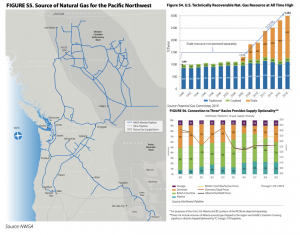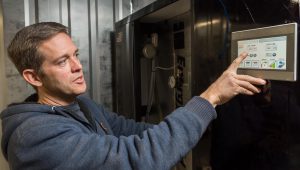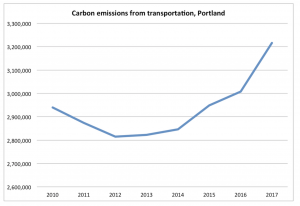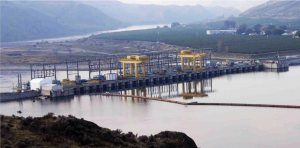Energy
2020 Gas Outlook • Market Fundamenatals
The technological renaissance that unlocked gas and oil from shale has gifted North America with a vast energy resource. (See Figures S1-S4 for current North American shale plays, production growth since 2000 and projected long-term supply through 2040.) The Pacific Northwest is located adjacent to two prolific producing regions: The…
Read MoreNOAH finds new liquified natural gas pipeline in Oregon will not jeopardize species.
By michael.milstein@noaa.gov at www.noaa.gov/ NOAA Fisheries has issued a final biological opinion on construction and operation of the Jordan Cove terminal in Coos Bay, Oregon, and the associated 229-mile long Pacific Connector Liquid Natural Gas pipeline. After conducting a thorough review, NOAA scientists determined that the proposed action does not…
Read MoreEnergy Saving Solutions + Energy and Production Efficiency = Better Product Quality & Lower Prices.
Cook Woods, a Klamath Falls-based, family-owned company mills exotic and domestic woods, and rare hardwoods, into specialty products for use by hobbyists, wood artists and instrument makers. Sustainability drives every part of the business. Having grown up in national parks as the son of a park ranger, founder Christopher Cook…
Read MoreJordan Cove Project Welcomes Release of FERC Final Environmental Impact Statement as Positive Step Forward
November 18, 2019 – Coos Bay, OR – The Jordan Cove Project welcomes the release of the Final Environmental Impact Statement (FEIS) and the FERC’s review of the Jordan Cove terminal and pipeline. The FEIS is the result of FERC’s comprehensive review process that Jordan Cove began in September 2017,…
Read MorePortland’s Climate Fail: More Driving
By Joe Cortright Carbon emissions from transportation in Portland increased 6 percent last year In the one are where city policy can make the most difference, greenhouse gas emissions are increasing Portland has long prided itself in being one of the first cities in the US to adopt a legislated…
Read MoreNavigating a Complex Path to a Secure Energy Future
By BEN KUJALA Planning for the 2021 Power Plan Planning for the power system is challenging. As planners, we try to determine how much electricity we will need over the next 20 years by evaluating uncertainty about weather, fuel prices, and changes in technology. As energy technologies, from solar to…
Read MoreDouglas County PUD to Explore Renewable Hydrogen Fuel Production
Pilot project proposes producing hydrogen with surplus hydropower By Carol Winkel, Northwest Power and Conservation Council Could hydrogen be the fuel of the future for vehicles? The Douglas County Public Utility District, which owns and operates Wells Dam on the Columbia River, is waging it could be an important resource to power clean…
Read MoreSpringfield Branch Wins Airgas’ National Branch of the Year Award
A local gas, welding and safety distributor has earned the National Branch of the Year award from its company, Airgas, an Air Liquide company. Selected among more than 900 Airgas branches across the country, the Springfield, OR branch was selected as one of four national branches of the year, an…
Read MoreU.S. utility-scale battery storage power capacity to grow substantially by 2023
Utility-scale battery storage units (units of one megawatt (MW) or greater power capacity) are a newer electric power resource, and their use has been growing in recent years. Operating utility-scale battery storage power capacity has more than quadrupled from the end of 2014 (214 MW) through March 2019 (899 MW).…
Read MoreOregon’s Renewable Portfolio Standard requires that 50 percent of the electricity Oregonians use come from renewable resources by 2040.
Oregon’s Renewable Portfolio Standard sets a requirement for how much of the electricity we use must come from renewable resources. “Renewable” means the source of power can be used repeatedly because it is replaced naturally, like wind or the sun. The original RPS was adopted in 2007, when just 2 percent of Oregon’s electricity…
Read MoreRenewable natural gas demand to increase with UPS purchase agreement
On May 22, 2019 United Parcel Service (UPS), a global provider of shipping and delivery services, announced that the company would increase its use of renewable natural gas (RNG) in the United States. UPS purchased 170 million gasoline gallon equivalent (gge) from fuel supplier Clean Energy Fuels to meet this…
Read MoreEnergy Trust invites public input on draft 2020-2024 Strategic Plan
SUZETTE RILEY C+C PORTLAND, Ore. — June 26, 2019 — Energy Trust of Oregon welcomes public comment to inform its draft 2020-2024 Strategic Plan. The strategic plan builds on the organization’s successful 17-year history serving Oregon residents and businesses with clean energy solutions. Once adopted, the strategic plan will help…
Read More






